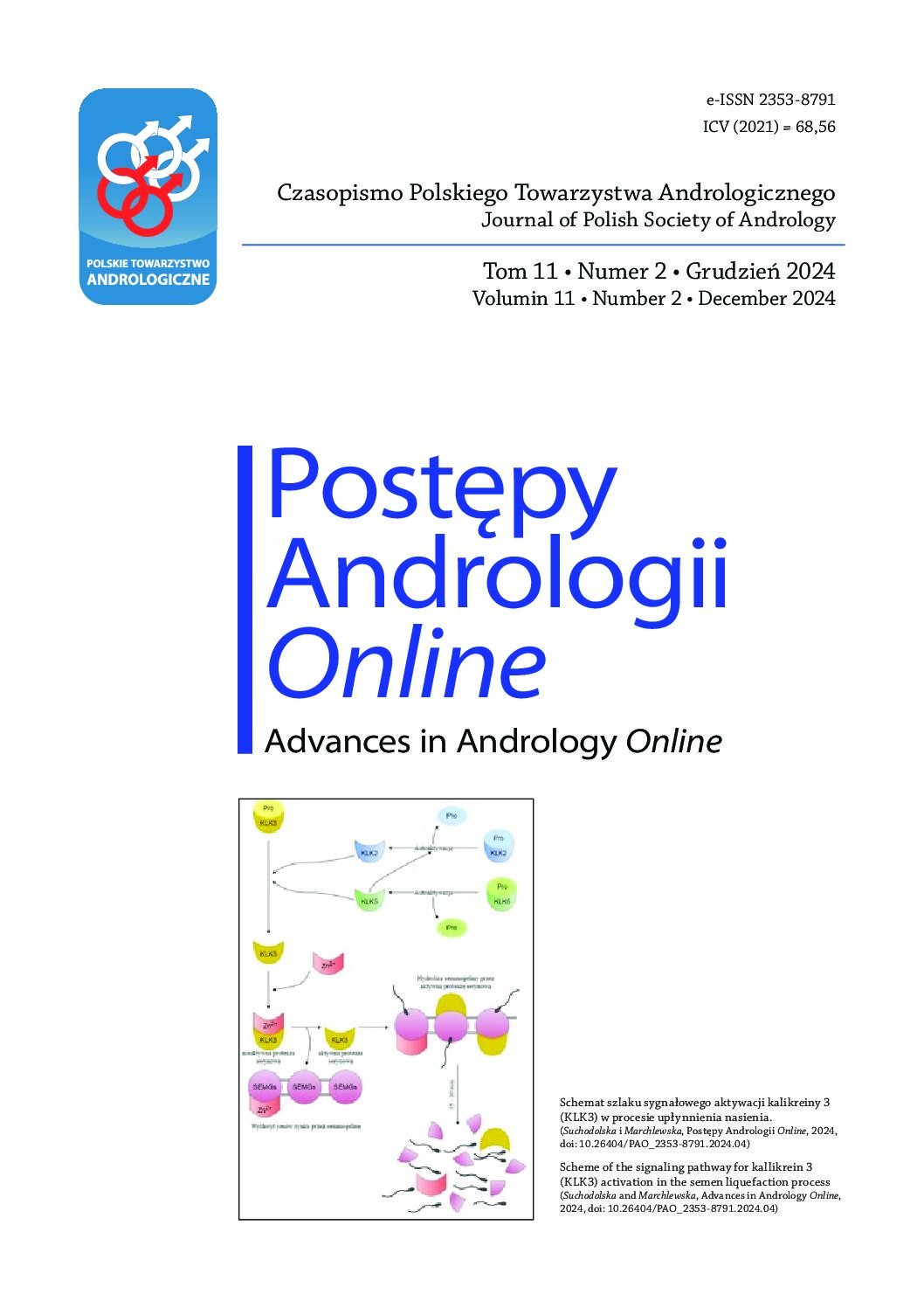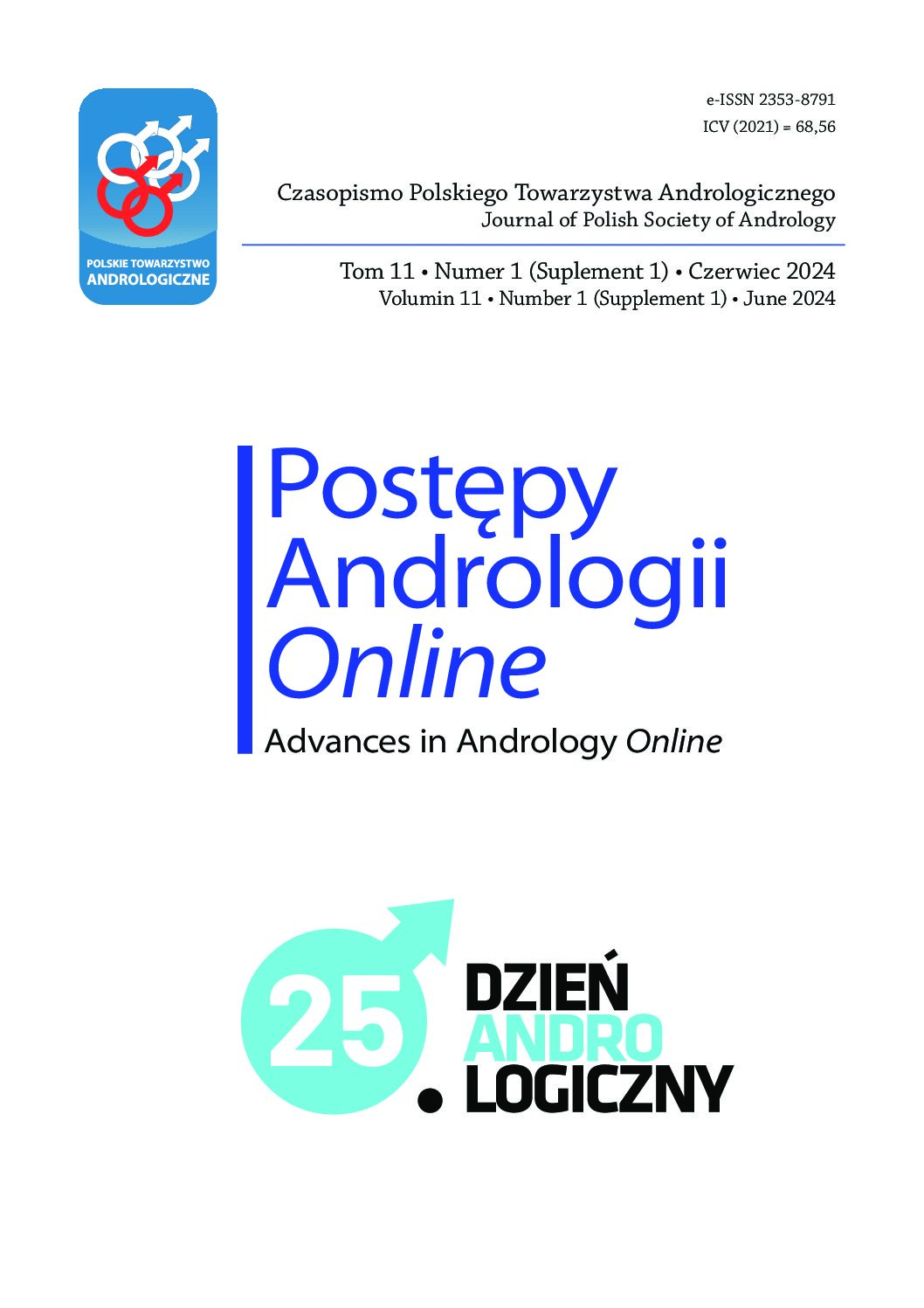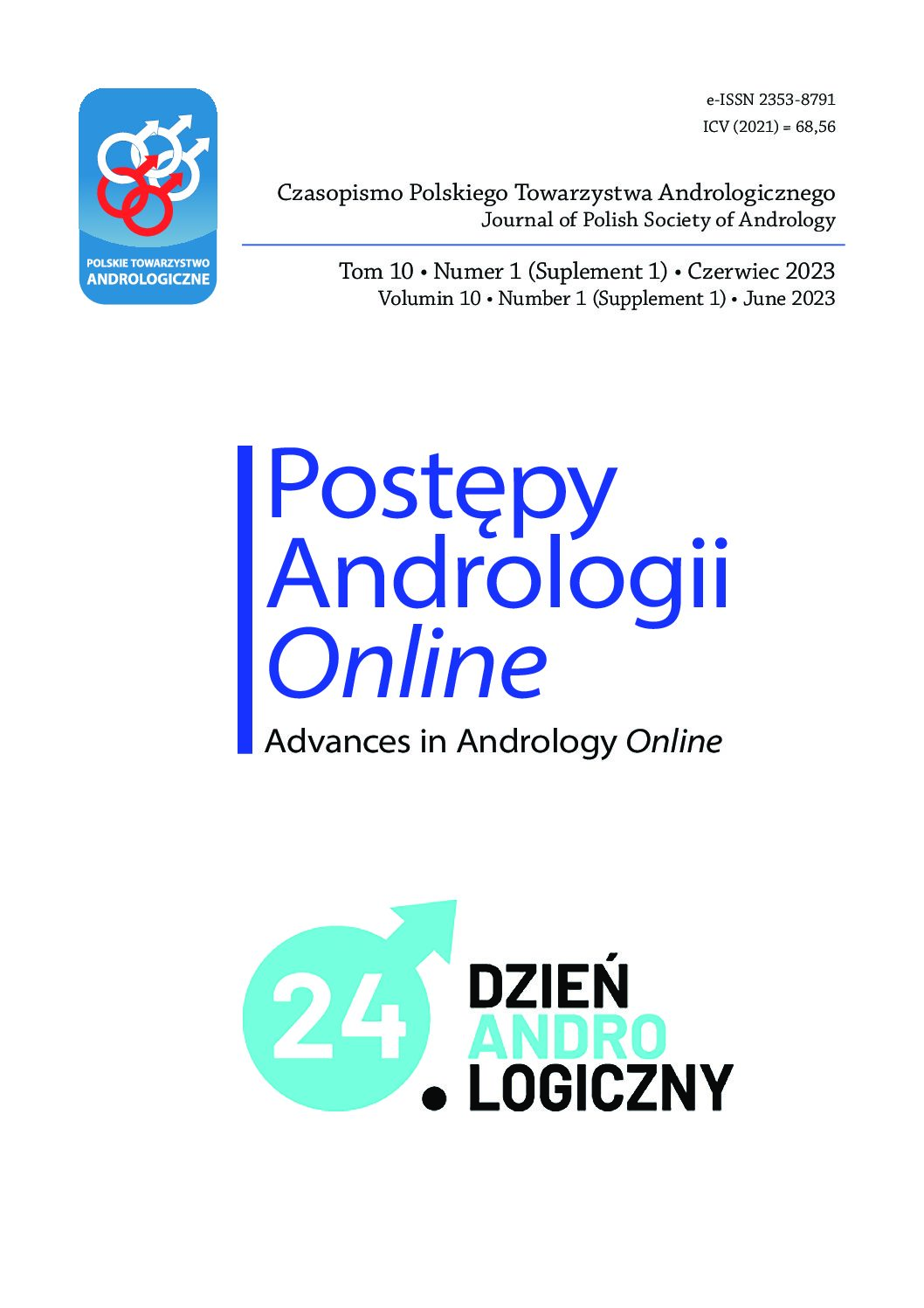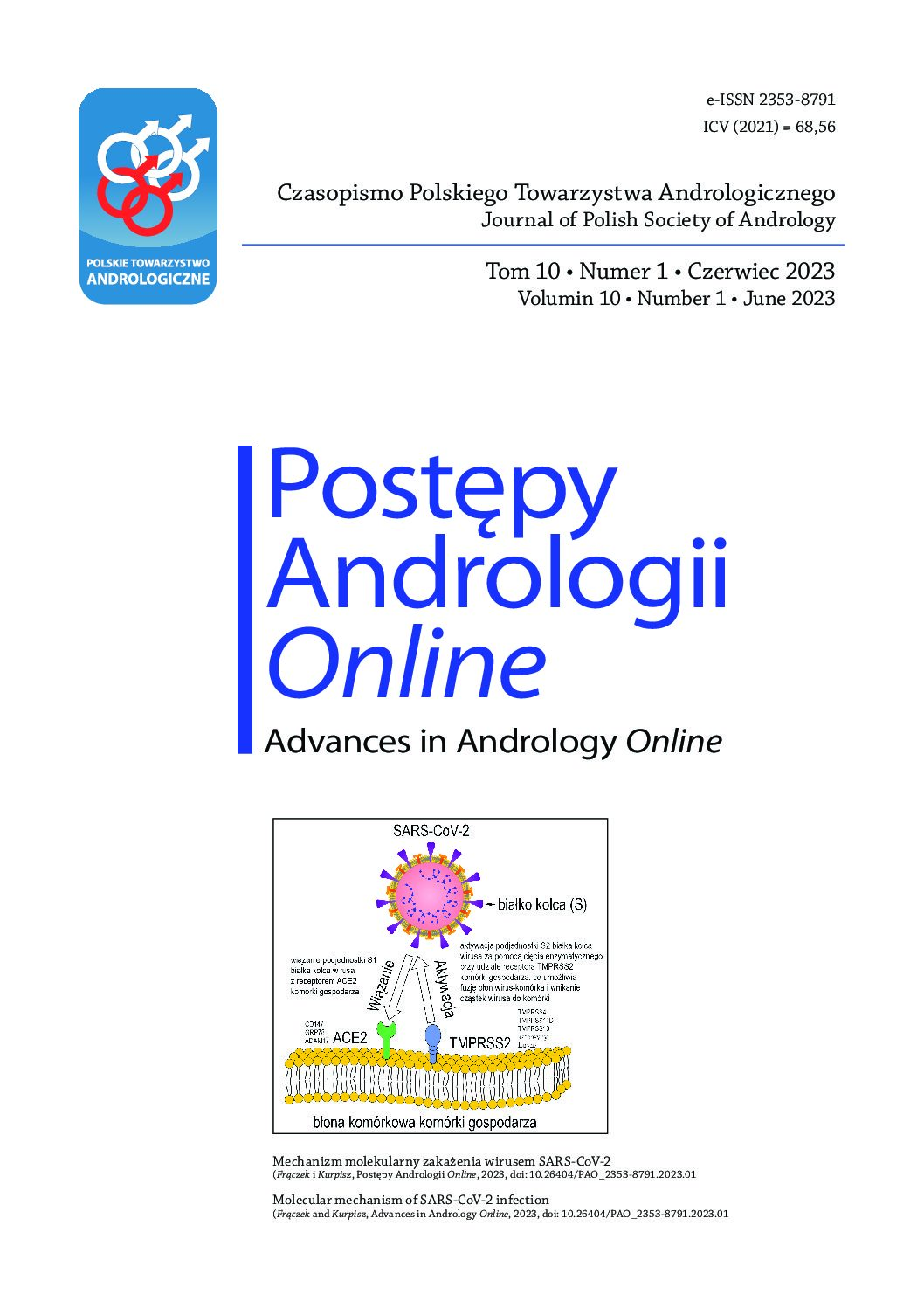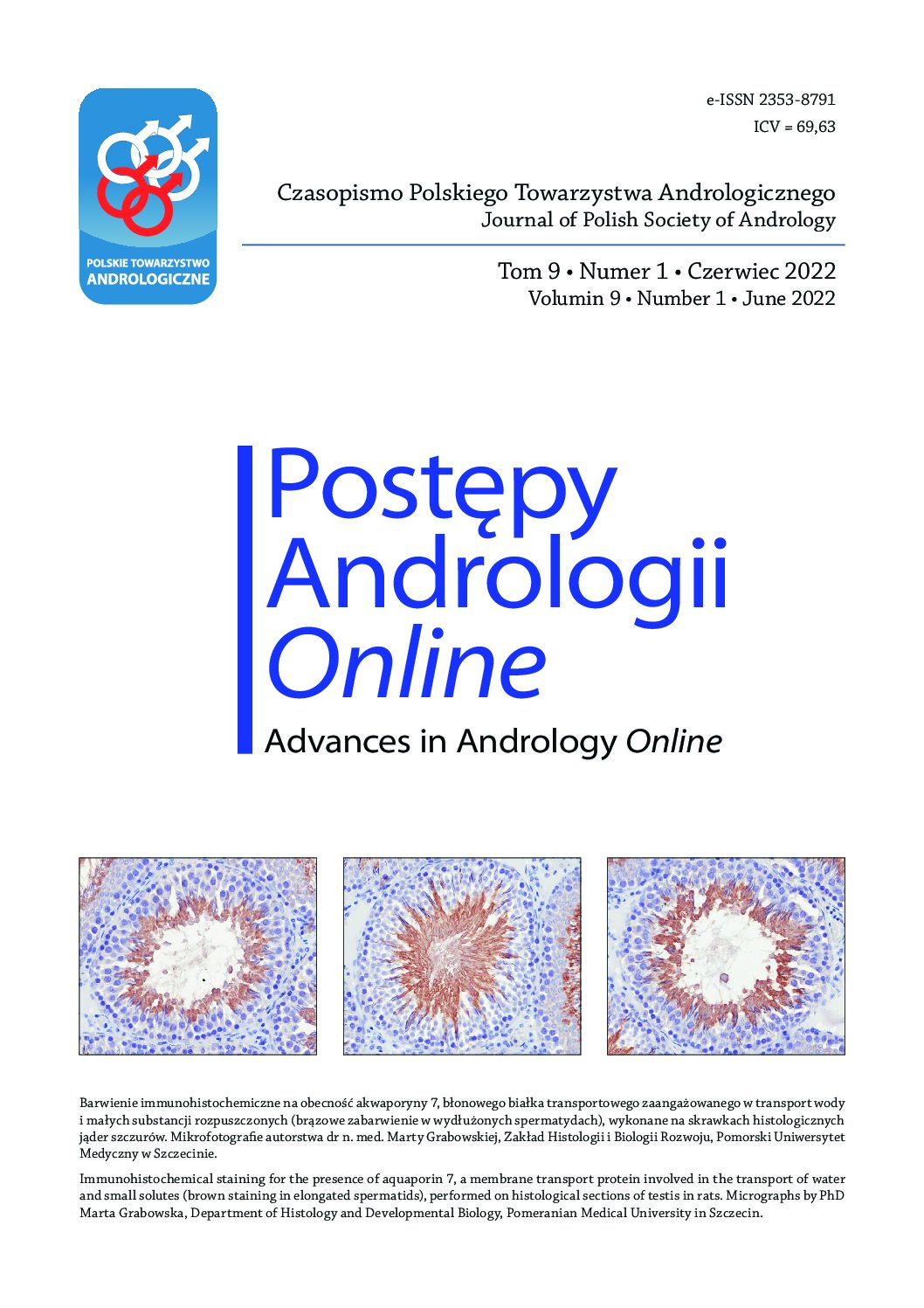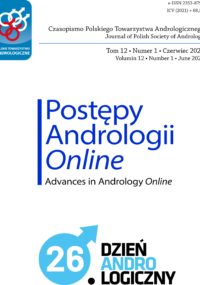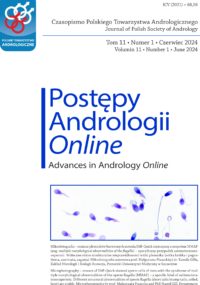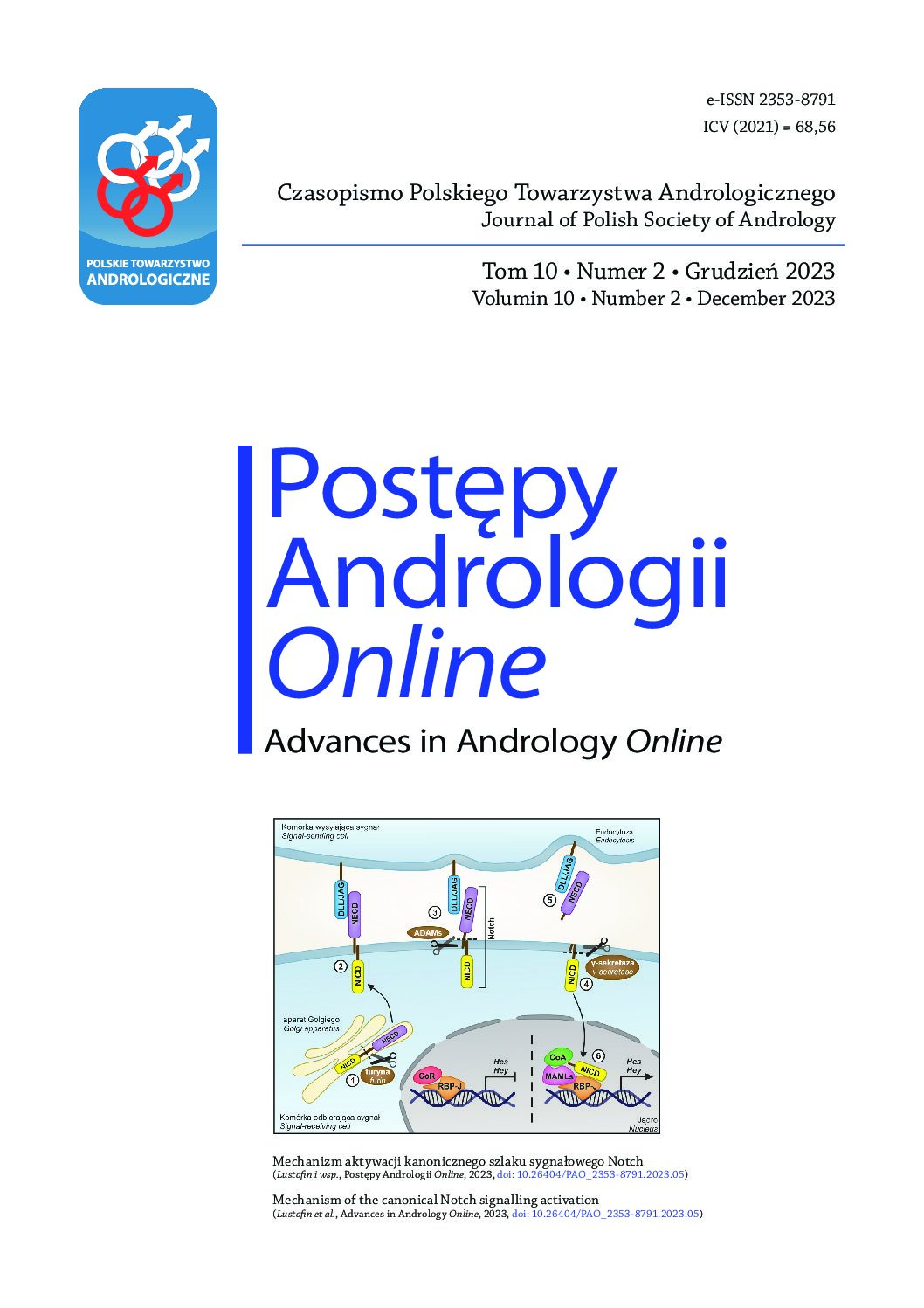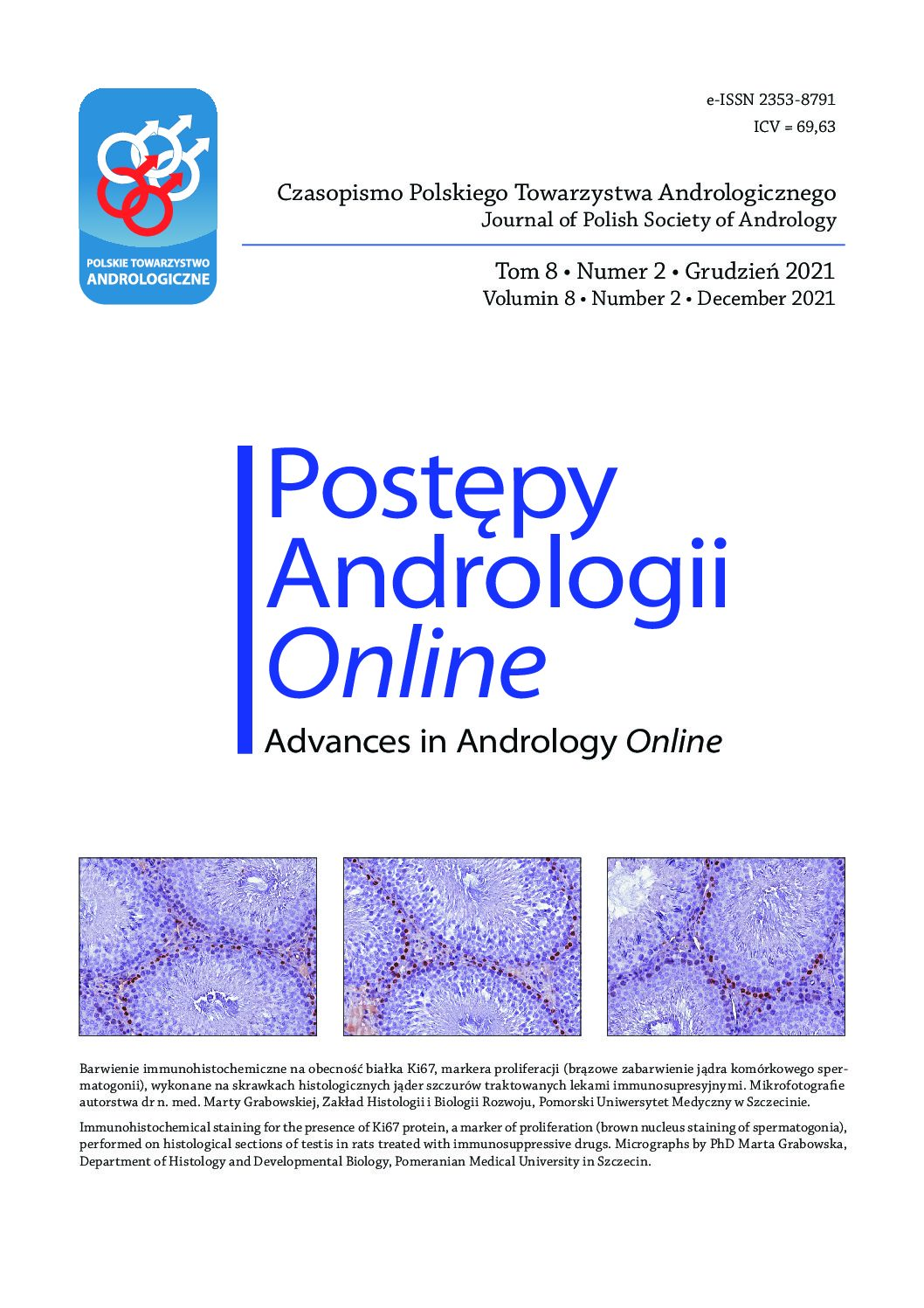Assessment of the psychometric properties of the polish version of the FertiQoL international questionnaire
Background and objectives. In the treatment of chronic diseases, including infertility, it is important to assess and monitor patients’ quality of life. Specific measurements allow for obtaining more precise knowledge about the cognitive, emotional and behavioral state of patients. The FertiQoL International questionnaire is a fertility-specific measurement tool. FertiQoL is a psychometrically reliable and accurate method for examining quality of life (QoL) in infertile people and couples. Therefore, the aim of the study was to evaluate the psychometric properties of the Polish version of the FertiQoL International Questionnaire. The statistical analysis confirmed the four-factor structure of the FertiQoL questionnaire (basic module – CORE) and the two-factor structure of the optional part of the FertiQoL questionnaire (module – TREATMENT).
Material and methods. The study involved 130 people (90 women and 40 men) with fertility problems treated at the infertility treatment clinics in Gdansk, Gdynia and Lodz. A battery of tests was used: FertiQoL, the Hospital Anxiety Scale and the Depression Scale in a modified version of the HADS-M, the Cantril Scale, the EORTCQL QLQ-C30 questionnaire and a demographic survey. The structural validity of the FertiQoL was assessed using the confirmatory factor analysis (CFA). Internal consistency was assessed with Cronbach alpha value, and convergent validity was tested by correlating FertiQoL with HADS-M, Cantril Scale and EORTC OLQ-C30 Questionnaire.
Results. The CFA showed a good fit of the data to the four-factor Core FertiQoL model and the two-factor FertiQoL Treatment model. Individual subscales were identified as separate constructs, which confirms the discriminant validity of the tool. The relational and emotional subscales, which were characterized by weak correlations with other dimensions were an exception. After removing 5 items (Q4, Q5, Q9, Q14, Q22), all FertiQoL scales showed good internal consistency. FertiQoL and individual subscales significantly correlated with both the Cantril Scale, the EORTC OLQ-C30 and HADS-M Questionnaire, which confirmed the convergent validity of the tool. Good internal consistency was found for both factor structures (Cronbach alpha 0.71–0.83).
Conclusions. FertiQoL is a tool for measuring the quality of life in people with infertility, and when applied to the Polish population, it meets the psychometric requirements to satisfactory extent. The analyzes used showed that it is a valid and reliable tool.
